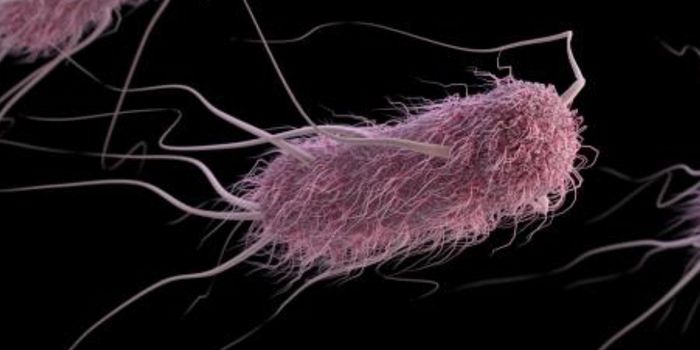The Gut Microbiome is Linked to Autoimmune Disease
Our bodies were once thought of as sterile environments, but scientists have shown that we carry a host of bacteria on and inside of us; we have about as many bacterial cells in our bodies as we do cells of our own. Research is showing that these bacteria have a critical influence on our health. New work by investigators at the University of Calgary has revealed more about how the bacterial community in our gastrointestinal tract, the gut microbiome, plays a role in inflammatory bowel disease (IBD), and potentially other autoimmune diseases.
The gut microbiome is not made up of a bunch of harmful microbes; we need them to aid our physiology. "The bacteria we have in our gut actually have many beneficial functions. They help in our digestion, prevent infection by pathogens and educate our immune system on what to fight,” said the senior author of the work, Dr. Pere Santamaria.
Santamaria and Kathy McCoy, Ph.D., have discovered how the gut microbiome can regulate both pro- and anti-inflammatory cells. "We found that a protein expressed by gut bacteria called Bacteroides works to prevent IBD by rapidly recruiting white blood cells to kill a cell of the immune system that is responsible for orchestrating IBD," explained McCoy. "We think that this mechanism is likely involved in preventing most people from developing IBD."
Although the bacterial protein calls for help, there’s a downside. "In some people, the white blood cells overreact to the presence of the IBD bacteria. This is what causes problems like IBD -- it's not the bacteria itself, but the immune system's severe reaction triggered by the protein. These same overstimulated white blood cells are also the cells that cause other autoimmune disorders like diabetes," explained Santamaria. "This discovery demonstrates the effect the gut microbiome has on the immune system and unearths a novel mechanism via which changes in the gut microbiome can increase the risk of autoimmune disorders. While we looked specifically at IBD, it is likely there are many proteins in the gut that contribute to the development of other autoimmune disorders via similar mechanisms."
Individual strains must be studied in isolation to assess the effects of a single bacterium. Mice that are free of bacteria are used for such work, and that need brought these researchers together. "It was germ-free mice that first began our research collaboration," noted McCoy. McCoy used germ-free mice in her previous research at the University of Bern, Switzerland. "Dr. Santamaria sent me his mouse strains to make them germ-free, and then we were able to add back single microbial species that did or did not express the protein in the gut to investigate their effect," McCoy said. They have continued to work together for six years.
While there are still many questions that remain, Santamaria and McCoy are hopeful that new knowledge about the gut microbiome will lead to better therapeutics for disease. A new, germ-free facility will soon be open; the Western Canadian Microbiome Center (WCMC) will be a place specially designed to accommodate the investigation of gut bacteria. "We will be able to study specific gut microbiomes without other environmental variables to consider," said McCoy, who is the WCMC Director. "This will help us further this research, as well as complete many other studies into the effects of the microbiome."
Learn more about the relationship between the microbiome and autoimmune diseases from the video above, the first in a series from Arthritis National Research Foundation.
Sources: AAAS/Eurekalert! Via University of Calgary, Nature, Cell










